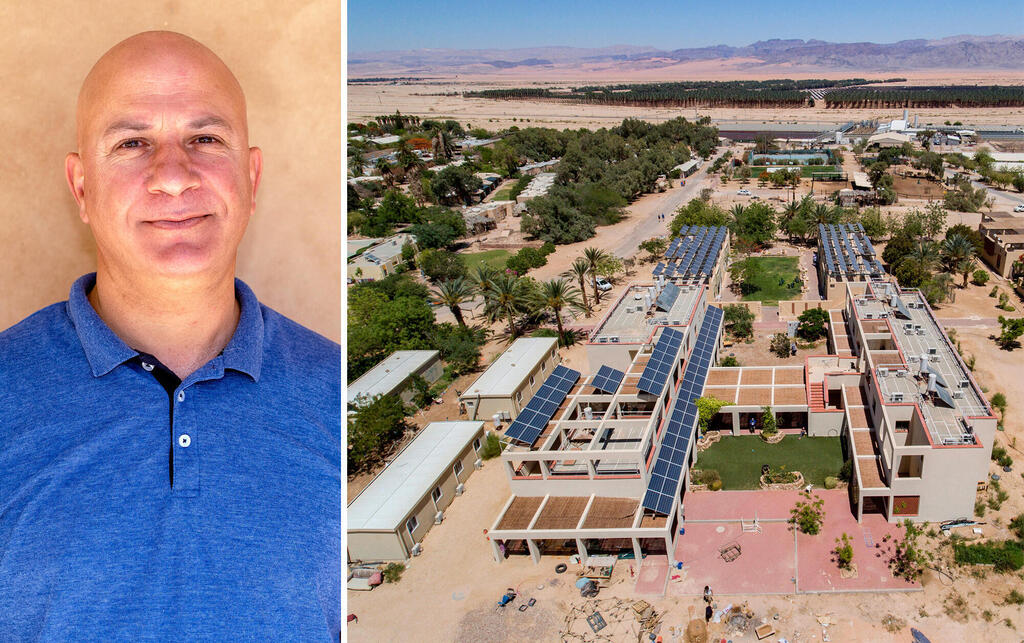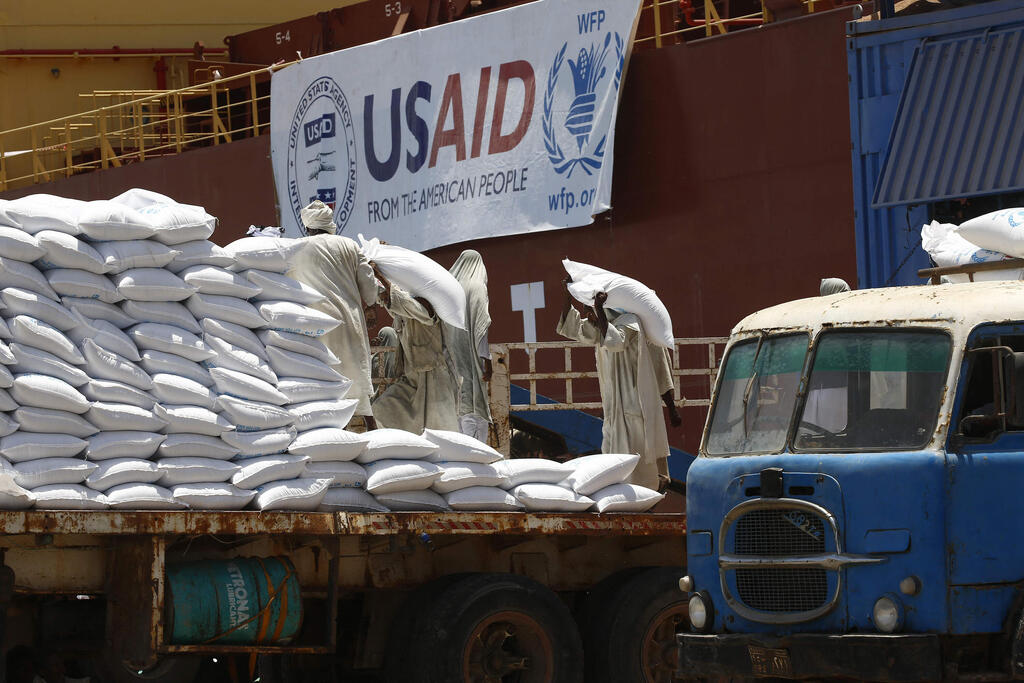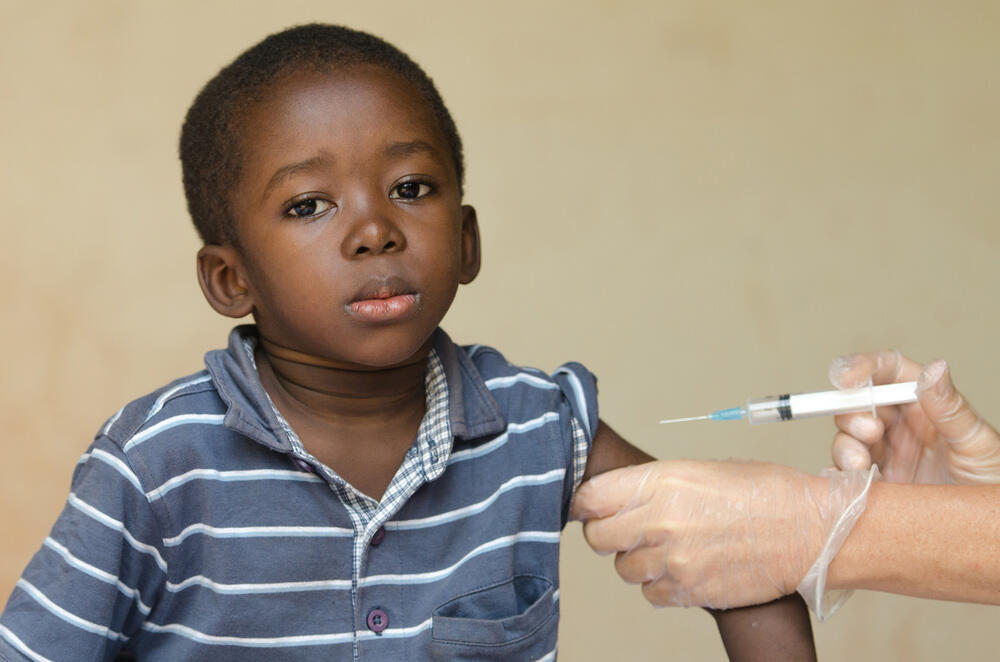Getting your Trinity Audio player ready...
Last week, Bill Gates publicly criticized Elon Musk, a close ally of U.S. President Donald Trump, accusing him of harming the world’s poorest children. The trigger: Trump and Musk’s decision to slash U.S. foreign aid, particularly funding for projects run by USAID, the United States Agency for International Development.
The scale of the cut, about $40 billion, has already led to the termination of global programs addressing hunger, vaccines for diseases like malaria and polio and climate change initiatives.
4 View gallery


Dr. Tareq Abu Hamed, Executive Director of the Arava Institute for Environmental Studies, next to the institute
(Photo: Marcus Shoneltz)
Israel, too, is feeling the blow. “We lost a quarter of our budget,” said Dr. Tareq Abu Hamed, director of the Arava Institute for Environmental Studies. “USAID valued our work. They were a major partner, and it ended abruptly—projects with Jordan, Morocco, the Palestinian Authority, student scholarships, research budgets. The impact is massive.”
The Arava Institute is a research center promoting cross-border environmental cooperation to build regional resilience to climate change and create shared solutions to environmental crises that transcend borders. Its work spans desert ecology, water resources, renewable energy, sustainable agriculture and more. The institute also trains future environmental leaders in the Middle East.
Programs serving US interests also hit
The Arava Institute’s annual budget is roughly $5 million, of which $1.3 million came from USAID. The cut was immediate, leaving partners in Israel and abroad stunned and unprepared. “We support civil society organizations that rely on us for 80% of their funding,” said Abu Hamed. “Now they’re shutting down. In places like Jordan, the Palestinian Authority or Gaza, losing that funding means no jobs.”
Ironically, the axed programs aligned with Trump’s own regional agenda. The institute had joint projects with Morocco, one involving renewable energy and agriculture, as well as renewable energy and water projects with Jordan and infrastructure collaborations with the Palestinian Authority. “Around 70% of West Bank villages lack proper sewage systems and rely on leaky cesspits that pollute groundwater,” said Abu Hamed. “Israel has to deal with that contamination, too. Our goal was to connect these communities to new facilities that recycle wastewater for agriculture.”
The Trump administration, however, showed no interest. “The programs they cut were serving U.S. interests,” Abu Hamed stressed. “This hurts critical infrastructure designed to support ties with Morocco, the UAE and Jordan. Regional cooperation needs continuity. If a Palestinian partner goes bankrupt, it’s hard to restart the partnership later.”
Ripple effect on Israeli research and regional stability
The cuts go beyond the Arava Institute. Research across Israel is also being hit, especially through deep cuts to the Middle East Regional Cooperation (MERC) program. According to data from Democratic senators, the administration cancelled $32 million in MERC grants supporting 40 active projects in public health, water management, climate and agriculture.
One such study involved Prof. Maya Negev of the University of Haifa, who also chairs the Arava Institute's board. Her $700,000 research project focused on cross-border climate change preparedness and public health. “The Middle East is warming faster than most regions,” she said. “When one country suffers a climate disaster, it affects its neighbors. Emergency cooperation during floods or wildfires can save lives and infrastructure.” Her team began the research, but in late February, they received the word: the funding was frozen with immediate effect. “That ended scholarships for graduate students and stopped all our work overnight.”
Cutting climate funding means more disasters
USAID’s sudden pullout sent shockwaves through 177 countries. Vital medication deliveries were abruptly halted, children left hungry, health workers laid off and care centers shut down—including those treating AIDS in 50 countries. A promising HIV vaccine trial in South Africa was canceled. Efforts to eradicate polio, malaria and tuberculosis have been disrupted. More than 10,000 USAID employees were put on unpaid leave, two-thirds of them stationed overseas.
With a stroke of his pen, President Trump eliminated $60 billion of the $68 billion in global U.S. aid, including $40 billion from USAID’s own budget. Internal projections reported by The New York Times in March predict severe fallout: sharp rises in malaria and polio cases and malnutrition affecting up to a million children.
Until Trump’s current term, USAID was considered a cornerstone of America’s “soft power,” aligning with national security interests. Beyond the human toll, the sweeping cuts are raising alarm in African communities and elsewhere about how they’ll cope with escalating climate threats—especially as climate-related programs are among the first to go. For instance, funding to protect forests in Malawi—helping poor communities earn income and withstand drought—was eliminated.
Climate experts warn that reduced investment will worsen disasters, reduce access to natural resources and destroy livelihoods due to inadequate climate adaptation. The result could be the forced displacement of tens of thousands of people annually. Every dollar invested in climate resilience, they argue, can save up to $15 in emergency response and recovery.
According to a congressional document analysis, over 98% of USAID grants with climate components had been canceled by March. That amounts to $2.1 billion and 174 grants lost.
Private investment may also collapse
USAID wasn’t funding these projects alone. Its investments were often a catalyst for billions in additional public and private funds. Many organizations now fear that the vacuum created by the cuts will deter other partners and drastically reduce their ability to compete for shrinking resources.
4 View gallery


USAID sacks of grain as part of foreign humanitarian aid in Sudan, 2018
(Photo: ASHRAF SHAZLY / AFP)
Following Trump’s lead, the UK announced it would reduce its foreign aid budget from 0.5% of GDP to 0.3%. Germany, France, the Netherlands and other European nations are also weighing cuts.
What began as a policy shift in Washington now threatens to unravel decades of global development work—putting lives, research and international partnerships at risk.



